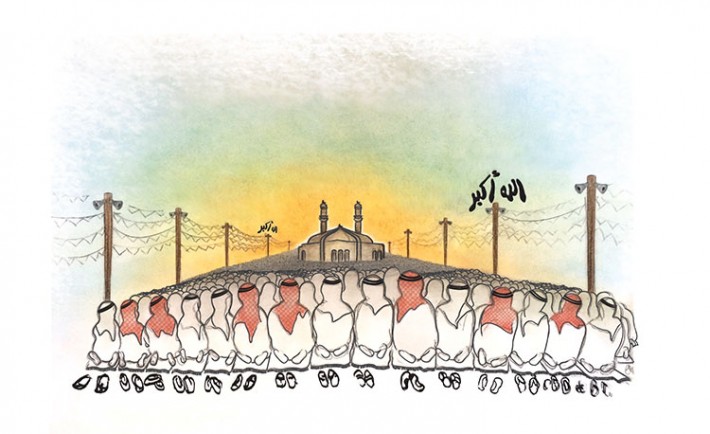By Eman Bukhari
Let’s talk about the spiritual wonder that is Eid prayer.
All over the world, at least 1.6 billion people wake up at dawn on the first of Shawwal to celebrate Eid Al Fitr – the celebration of breaking the fast, a Muslim occasion that marks the end of the holy month of Ramadan. This practice dates back to the second Hijri year/ 623 AD and is celebrated differently from one Muslim community to the other, but its essence is uniform throughout the world and it begins with the Eid prayers.
You make your way to the Eid musalla on foot in the morning with your family, greet your neighbors dressed in their finest clothes, take a deep breath and smell the sweetest perfumes, wish strangers a Eid Mubarak, and sneak in line with the children as eidiyat (loose change) and small treats are handed out.
Up until it’s time for prayer, mosques will perform takbeerat, with everyone in attendance chanting along in unison. The prayer itself is two raka’as, and within the prayer different numbers of takbeerahs are given. The prayer is closed out with a sermon.
The reasoning behind the practice in combination with the action is what gives you the overwhelming sense of spirituality. Your heart flutters when your eyes fall on the sight of your whole community lining up; you get goose-bumps hearing your Muslim brothers thank Allah and praise his greatness in one voice.
The image itself exemplifies what we have to be thankful for and why we need to praise our creator. You see humanity standing side by side with no divide, in agreement on all that we are blessed with and why we are here.
The prayer carries immeasurable religious merit and is described as the reward after a month of fasting and hard work. Everyone is encouraged to attend so that, with your Muslim brothers and sisters, you stand ready to collect Allah’s gift.
Eid prayers are not only conducted in mosques, but designated neighborhood musallas as well. Below are some in Sharqiya:
- Mosala Eid Al Kaber, Garnada Neighborhood, Dammam
- Mhaideb Mosque, Corniche, Khobar
- Ibn Taymiyyah Mosque, Fanateer, Jubail
- Al Rawdah Mosque, Al Rawdah, Alhasa










